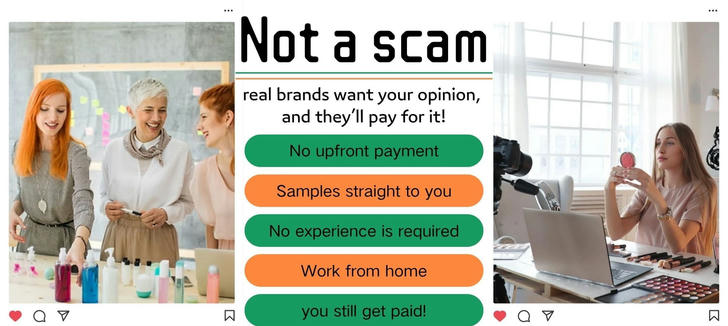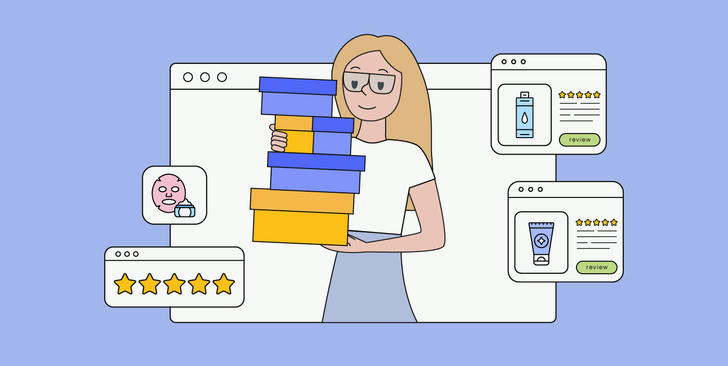How do product testers in Kenya get paid to unpack packages?
Ever thought you could make money by trying out new health products, farm tools or mobile apps? It's no longer a dream - thousands of Kenyans are now making 10,000 to 25,000 Kenyan shillings a month by trying out real products from real companies. No office hours, no startup fees. All you need is a phone, an idea, and a little curiosity.

🔍 Why do brands pay people like you?
Simple: trust.
In Kenya, local consumers trust real experiences more than hard advertising. Technology, health and agricultural brands want to enter the market and urgently need "first-hand feedback" from ordinary families to iterate their products - paying people to test them naturally becomes a cost-effective choice.
What brands gain:
Honest, in-situ feedback
Real usage conditions and performance logs
Local insights that help improve market relevance
What testers gain:
Tangible earnings
Early access to innovations
Occasional retention of the product after testing
💰 How much can testers expect to earn?
Based on available salary data and surveys within the product testing community, the income potential is significant when approached with dedication and organization. Entry-level roles in product testing and quality assurance typically offer KES 36,000–76,000 per month in a structured employment context. However, individuals who prefer flexible or home-based testing assignments can still secure monthly revenues in the range of KES 25,000–60,000, provided they maintain consistency and follow task guidelines accurately.
Examples by category:
| Product Category | Per Task Remuneration (KES) | Typical Testing Assignments |
|---|---|---|
| Technology | 2,000–15,000 | Speed tests for 5G routers, solar charger battery life logs |
| Health | 3,000–20,000 | Track blood pressure device accuracy, monitor supplement side effects |
| Agriculture | 2,500–18,000 | Calibrate smart sensors, assess seed germination under different conditions |
For those seeking to maximize rewards, adding environmental data such as temperature, humidity, or network strength during testing can yield 10–20% additional bonuses, as companies use this data for further analysis.

🛠️ How to become a product tester – 3-step guide
1. Build a credible tester profile
Companies assess testers based on demographic and practical details. These profiles help in matching individuals with products they can meaningfully evaluate.
Factors that matter include:
Location: Whether based in Nairobi, a peri-urban area, or a rural setting
Profession or daily activity: For instance, being a teacher, a homemaker, or a boda-boda operator
Tools available: Possession of a smartphone, laptop, or even a feature phone
Important reminder: Misrepresentation can lead to disqualification. For example, a candidate once claimed to be a farmer but failed to explain key crop cycles, leading to immediate removal from the tester database.
2. Pass initial screening questions
Before participation begins, companies often ask basic filtering questions. These determine not just eligibility, but the most suitable testing assignment.
Typical questions may include:
Prior experience with similar tools or devices
Willingness to provide media evidence (e.g., photos or short clips)
Availability for continuous testing over 2–4 weeks
Case in point: A participant from Machakos applied to trial an agro-weather SMS service. Due to a weak Safaricom signal in his area, he was redirected to a version designed for low-connectivity zones. While this came with slightly lower compensation, the testing opportunity remained intact.
3. Complete assigned tasks diligently
After selection, testing usually involves tiered tasks depending on the nature and complexity of the product:
Basic level: Try the product and submit a short written review. Compensation typically falls between KES 2,000–5,000.
Advanced level: Provide video logs, screenshots, or behavior tracking reports. This can yield between KES 5,000–15,000.
Bonus tasks: Participate in Zoom focus groups or WhatsApp feedback forums, often rewarded with airtime credits or data bundles worth KES 1,000.
Payment processing:
Once feedback is submitted, most companies issue payment through M-Pesa within 5–7 business days.
🎯 Ideal tester profiles in Kenya
Some individuals naturally align with certain product categories due to their daily lives and environments.
1.Small-scale farmers
Products: Soil analysis kits, irrigation timers, crop growth monitors
Income per assignment: Up to KES 15,000
2.Healthcare workers and community nurses
Products: Health apps, diagnostic kits, wearable medical devices
Additional benefits: Clinic access, priority in health trials
3.University and college students
Products: Budgeting tools, e-learning platforms, mobile diagnostic apps
Advantages: Fast tasks and easy digital payment reception
⚠️ Common mistakes to avoid
Avoid overpromising: Feedback should be realistic. Saying a product “works well on small plots” is more helpful than exaggerated praise.
Confidentiality matters: Some products are still under development. Leaking details can disqualify a tester permanently.
Effort matters: Incomplete or vague reviews often result in testers being excluded from future opportunities.

🔥 Promising projects being tested in 2024
Health Sector:
AfyaPulse: A bilingual blood pressure tracking app in both Swahili and English
SolarMed: A solar-powered malaria self-testing kit
Agriculture Sector:
EcoGrow: A smart soil analysis system with a four-week testing cycle
iPump: A solar-driven irrigation device; testers who submit videos receive enhanced payments
Technology Sector:
M-Pay: A personal finance app rewarding testers with bonuses for reporting software bugs
SokoLink: A digital farmers’ market platform where testers trial the seller dashboard and report usability feedback
🚀 Conclusion
Across Kenya, an increasing number of individuals are leveraging their daily environments to participate in product development processes that shape tomorrow's technology, agriculture, and healthcare tools. This shift has blurred the lines between end-users and developers. From living rooms in Nairobi to farms in Bungoma, testers are providing insights that directly influence product design and usability. As this movement grows, those participating are not only contributing to innovation but also creating a sustainable source of income based on curiosity, precision, and honest feedback.
